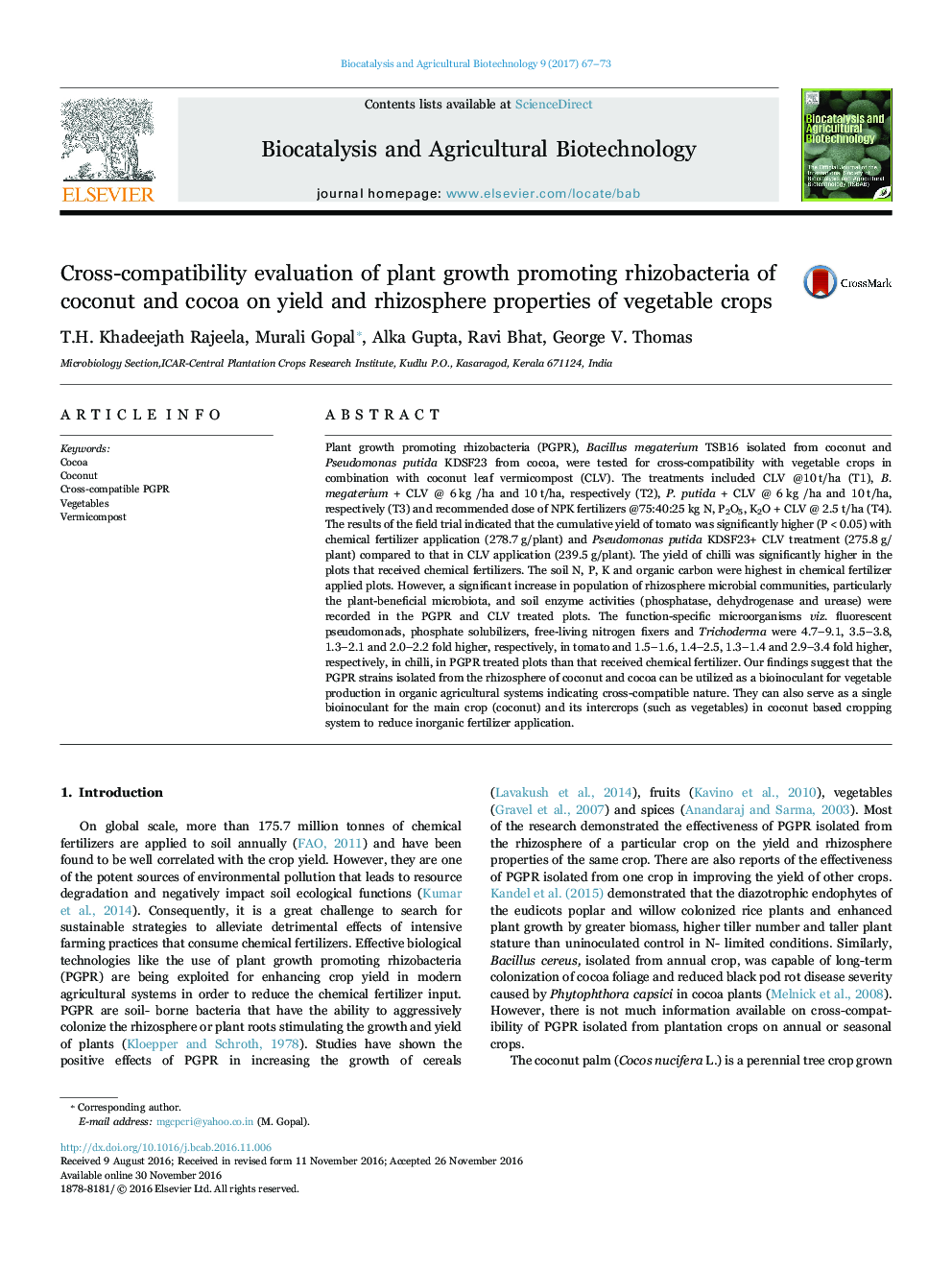| کد مقاله | کد نشریه | سال انتشار | مقاله انگلیسی | نسخه تمام متن |
|---|---|---|---|---|
| 5520554 | 1544903 | 2017 | 7 صفحه PDF | دانلود رایگان |
- PGPR, Bacillus megaterium from coconut and Pseudomonas putida from cocoa, assessed in vegetable crops.
- PGPR with vermicompost application increased the yield of chilli and tomato.
- PGPR with vermicompost improved rhizosphere nutrient, microbial and soil enzyme properties.
- PGPR isolated from perennial crops were found cross-compatible with vegetables crops.
Plant growth promoting rhizobacteria (PGPR), Bacillus megaterium TSB16 isolated from coconut and Pseudomonas putida KDSF23 from cocoa, were tested for cross-compatibility with vegetable crops in combination with coconut leaf vermicompost (CLV). The treatments included CLV @10 t/ha (T1), B. megaterium + CLV @ 6 kg /ha and 10 t/ha, respectively (T2), P. putida + CLV @ 6 kg /ha and 10 t/ha, respectively (T3) and recommended dose of NPK fertilizers @75:40:25 kg N, P2O5, K2O + CLV @ 2.5 t/ha (T4). The results of the field trial indicated that the cumulative yield of tomato was significantly higher (P<0.05) with chemical fertilizer application (278.7 g/plant) and Pseudomonas putida KDSF23+ CLV treatment (275.8 g/plant) compared to that in CLV application (239.5 g/plant). The yield of chilli was significantly higher in the plots that received chemical fertilizers. The soil N, P, K and organic carbon were highest in chemical fertilizer applied plots. However, a significant increase in population of rhizosphere microbial communities, particularly the plant-beneficial microbiota, and soil enzyme activities (phosphatase, dehydrogenase and urease) were recorded in the PGPR and CLV treated plots. The function-specific microorganisms viz. fluorescent pseudomonads, phosphate solubilizers, free-living nitrogen fixers and Trichoderma were 4.7-9.1, 3.5-3.8, 1.3-2.1 and 2.0-2.2 fold higher, respectively, in tomato and 1.5-1.6, 1.4-2.5, 1.3-1.4 and 2.9-3.4 fold higher, respectively, in chilli, in PGPR treated plots than that received chemical fertilizer. Our findings suggest that the PGPR strains isolated from the rhizosphere of coconut and cocoa can be utilized as a bioinoculant for vegetable production in organic agricultural systems indicating cross-compatible nature. They can also serve as a single bioinoculant for the main crop (coconut) and its intercrops (such as vegetables) in coconut based cropping system to reduce inorganic fertilizer application.
214
Journal: Biocatalysis and Agricultural Biotechnology - Volume 9, January 2017, Pages 67-73
